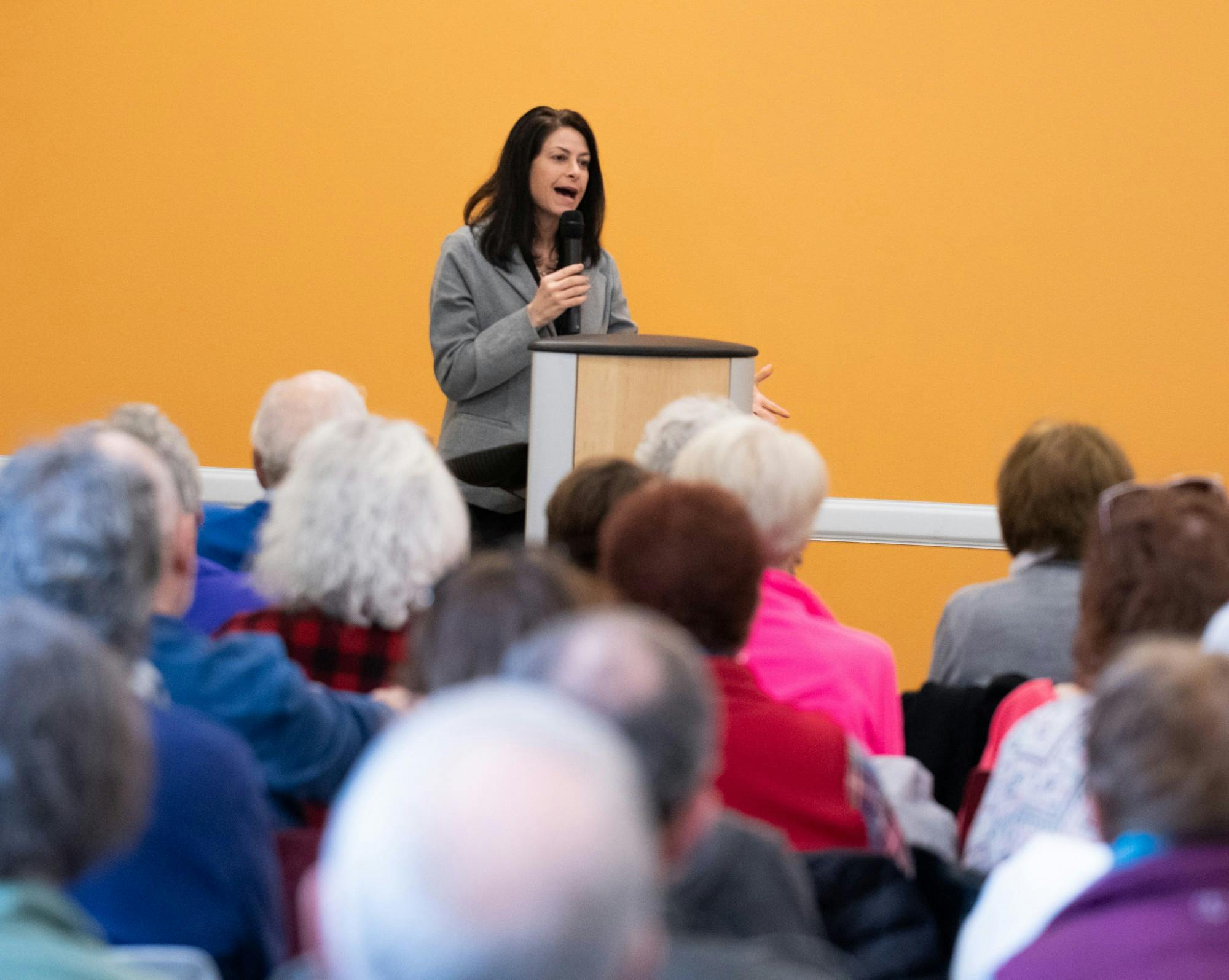Attorney General Dana Nessel’s office has issued five cease and desist orders to individuals and entities from both political sides spreading misinformation during the general election, according to a release sent Friday.
One letter, sent to Big League Politics — a far-right American media website — referenced a misleading video, which contained heavily edited audio recordings of a Detroit poll worker's training session, alleging they had been trained to commit illegal acts while counting ballots. The video has since been flagged as misinformation and removed from YouTube, the release said.
According to the release, the Attorney General’s office is continuing investigations into Big League Politics and other entities who had been sent cease and desist letters to determine whether laws were broken. Additional information may not be provided until investigations are complete.
“These actions highlight my office’s commitment to pursuing, investigating and charging, when necessary, election fraud,” Nessel said in the release. “Signing someone else’s name to a ballot is a felony under state law, and spreading misinformation to purposefully interfere with our election and ballot-counting processes is criminal behavior that will not be tolerated. Michigan has multiple layers of review throughout our election process that make it very difficult for a bad actor to commit fraud, which is why it so seldom occurs.”
Amid the onslaught of false accusations, a man from Canton Township, Paul Parana, is currently charged with a five-year felony for forging a signature on an absentee ballot and a four-year felony for impersonating another to vote at an election. Parana allegedly completed, signed and submitted his daughter’s absentee ballot to his local clerk’s office, the release said. The ballot was voided prior to the election.
Other incidents highlighted in the release include false allegations out of Marquette and Detroit after individuals separately posted on Facebook seemingly admitting to engaging in illegal activities during the election.
The Attorney General’s office has also taken action to stop alleged attempts to suppress the vote by Jack Burkman and Jacob Wohl, who reportedly orchestrated a robocall to Detroit voters in an attempt to deter them from participating in the election through the use of absentee voter ballots, according to the release. Burkman and Wohl were recently bound over to Wayne County Circuit Court for several felony election law violations.
“These are important examples of our commitment to review, investigate and prosecute – if appropriate – any allegation of election fraud,” Nessel said. “By working with our partners in law enforcement and government at all levels, we will ensure the integrity of our elections is protected and the results accurately reflect the will of the people.”
Several other lawsuits have been filed in Michigan following the election. According to the release, the Attorney General’s office is continuing to work to defend those filed against state agencies and officials.
This includes Trump for President, Inc and Eric Ostergren v. Benson, a lawsuit filed Nov. 4 by the Trump campaign stating video surveillance of absentee voter ballot drop-boxes should be provided to challengers of the vote and alleging that the absentee voter counting boards in the state were being held without inspectors from both parties present.
Michigan Court of Claims Judge Cynthia Stephens denied the motion Nov. 5, the release said. In an application filed to appeal with the court, the plaintiffs failed to provide the required documentation and evidence leaving the case pending.
Another suit filed by the Trump campaign against Secretary of State Jocelyn Benson, the Board of State Canvassers and Wayne County Canvassers on Nov. 11 alleges fraud and various irregularities out of Detroit’s absentee voter counting board at the TCF Center, the release said.
The final case — Bally, et al v. Whitmer, et al, alleges similar fraudulent activity out of Detroit but also includes a motion that the vote counts in Washtenaw and Ingham counties should be discarded. This would result in over 1 million thrown out votes, though the claims are baseless, according to the release. The Attorney General’s office is still to respond in court.
“The cases that have been filed thus far provide no evidence to support their claims,” Nessel said. “Those who continue to push a false narrative claiming our elections were not conducted in a fair, free and transparent manner, or that there is widespread voter fraud, are only trying to erode public confidence in our election system, undermine our democracy and steal the election away from the people of Michigan. The facts simply are not there to support these claims.”
Support student media!
Please consider donating to The State News and help fund the future of journalism.
Discussion
Share and discuss “Attorney General's office issues cease and desist following claims of voter fraud” on social media.








